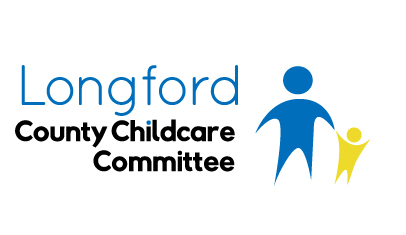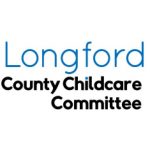Professional Practice in the Early Years
“Practising in a professional manner requires that individuals have skills, knowledge, values and attitudes appropriate to their role and responsibility within the setting. In addition, it requires regular reflection upon practice and engagement in supported, ongoing professional development.” (Siolta, 2006)
The role of the adult is referred to continually as central to providing quality early childhood experiences for young children and their families. As is highlighted in the Aistear Siolta Practice Guide, this professional practice role can often be overlooked or misunderstood by parents, other professionals, the community and wider society. The way in which practitioners view, describe and explain their role impacts on how it is seen by others. This image and sense of identity as a professional can, in turn, influence how practitioners feel about their own role, carry out their work with children on a daily basis and interact with parents and other professionals.
Early years practitioners are characterised by their commitment to young children – when they discuss early years issues, their voices are powerful and there is a wealth of expertise and knowledge. Yet historically there have been particular difficulties in the field of early years in defining the nature of professional knowledge, skills and beliefs of its practitioners.
Maloney (2013) notes that early years practitioners around the world struggle for professional recognition and status. Mahony and Hayes (2006) argue that ECCE is predominantly characterised by a lack of professionalism, low salaries, lack of training and poor working conditions. Recent developments in qualifications in early years and begun a very gradual shift towards the professionalisation of the sector, there has not however been a corresponding increase in professional status, recognition or remuneration. (Maloney, 2013)
In a national study of educators’ perceptions of their professionalism in New Zealand, Dalli (2008) found the need for a distinct pedagogical style and values; specialist knowledge, qualifications, professional development and reflective practice. Within the Aistear Siolta Practice Guide, the professional role of the practitioner is highlighted but as Maloney (2013) points out this is not reflected in their salary, CPD opportunities or working conditions. She indicates that Aistear: The Early Years Curriculum Framework has the potential to address the issue of professional identity in the early years but a lack of governance, funding and support currently inhibits this. The introduction of Department of Education and Skills (DES) inspections may elevate the status of working in the early years but there is no indication that this will increase the remuneration levels of practitioners and so the issue to professional identity or lack thereof remains. (Maloney, 2013)
There are multiple factors that influence a practitioner’s professional practice such as the availability of CPD and time dedicated to professional learning in the workplace. In recent research carried on by LCCC Continuous Professional Development within the sector was probed. All participants without exception referred to the importance of engaging in CPD and appeared willing to engage in workshops that LCCC offered.
“I’m happy to try anything LCCC offers”
CPD is generally not a contractual obligation when working in the early years so the participants were asked to highlight what motivated them to engage in CPD. A passion for the sector, a commitment to quality and personal gain were cited.
“I love learning new things and bringing them back to the setting”
“I am passionate about early years and always have been”
“I embrace whatever is new. I like to have a quality service and CPD is important for this”
Hynes (2009) and French (2013) highlight one of the key challenges with developing professional practice in the early years, as the lack of investment in CPD to enable service providers to make our Aistear and Siolta frameworks a reality and therefore, one could summarise, deprioritise the importance of professional practice.
According to the Department of Children and Youth Affairs (DCYA), ECCE settings need systematic support to implement quality early years experiences for young children. In its national policy framework for children and young people – Better Outcomes Brighter Futures – the government ‘commits to supporting early childhood practitioners through the provision of Continuous Professional Development (CPD) and the establishment of peer learning groups’ (DCYA, 2014).
This is a positive move from government, as in 2013 French, notes that the early years sector in Ireland requires significant and radical development in its approach to CPD.
Hodson and Keating (2007) refer to the importance of CPD opportunities in leadership for ECCE staff to ensure high quality children’s learning is supported and sustained. The government does recognise that for services to be high quality and effective they must have strong leadership and a clear strategic director. (DCYA, 2014)
The government have committed and invested funding in the establishment of a National Support Service to assist practitioners to implement Aistear and Síolta. (NCCA, 2013) While currently, the criteria to be accepted onto this mentoring programme is quite narrow, it can be seen as a step in the right direction to improve professional capacity to understand and implement the quality frameworks. Additionally the National Council for Curriculum and Assessment (NCCA) in conjunction with the Department of Education and Skills (DES) have collaborated to devise and deliver the National Siolta Aistear Initiative (NSAI) which is currently being piloted in LCCC. This initiative aims to upskill practitioners in the implementation of Aistear and Siolta in their services and so impact on the professional practice of practitioners in the early years.
Longford County Childcare Committee believes strongly in the both the power and indeed the importance of professional practice in the workplace. We are committed to providing ongoing support to early years providers in developing their own professional practice as is evident from our training calendar available on our website and Facebook page.
If you are a provider in the county and wish to avail support in this area please do contact us to discuss your needs.




